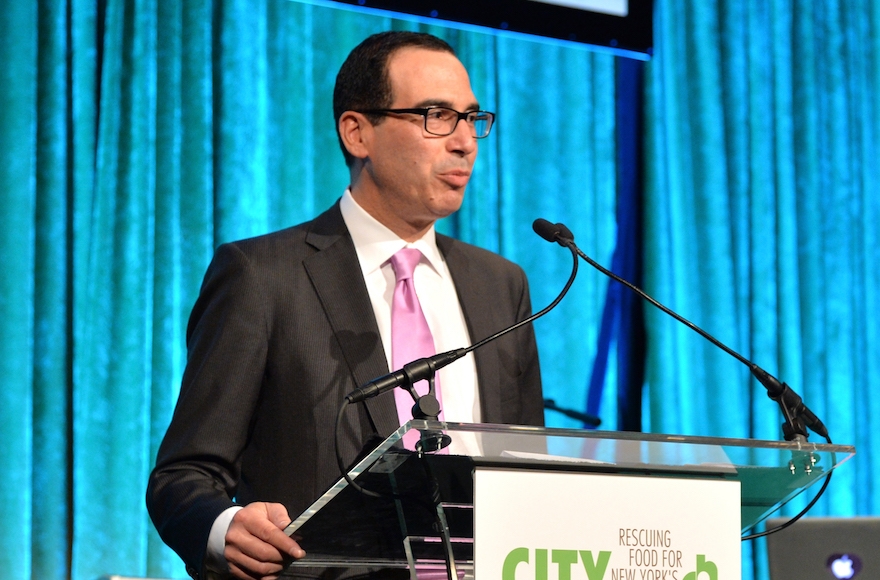WASHINGTON (JTA) — The Trump administration reimposed many of the sanctions that were eased under the Obama administration in the 2015 Iran nuclear deal, and said they would continue until Iran ended its backing for terrorism, its missile program and its adventurism in the Middle East.
The financial pressure “should make clear to the Iranian regime that they will face mounting financial isolation and economic stagnation until they fundamentally change their destabilizing behavior,” Treasury secretary Steven Mnuchin said in a statement Monday, the day the sanctions kicked in. “Iran’s leaders must cease support for terrorism, stop proliferating ballistic missiles, end destructive regional activities, and abandon their nuclear ambitions immediately if they seek a path to sanctions relief.”
The sanctions targeted hundreds of individuals and entities tied to Iran’s energy, banking and shipbuilding sectors. The Obama administration had lifted sanctions on entities dealing with those sectors as part of the 2015 nuclear deal, which exchanged sanctions relief for a rollback in Iran’s nuclear program.
The sanctions target third parties that deal with Iran. The United States has banned almost all direct U.S. dealings with Iran for decades.
Not all of the sanctions were reimposed. Eight countries were given six-month exemptions on importing Iranian oil: China, India, South Korea, Turkey, Italy, Greece, Japan and Taiwan.
Additionally, although a number of banks were on the list, Iran’s Central Bank was exempted. In 2010, the Obama administration sanctioned the Central Bank, effectively cutting off Iran from any U.S. cash dealings, and the resulting pressure helped bring Iran to the talks that led to the nuclear deal.
In May, President Donald Trump pulled out of the agreement, called the Joint Comprehensive Plan of Action, and Monday was the deadline to reimpose its sanctions. The other parties to the deal, including Iran, Russia, China and the European Union, remain committed to it.
The same day as the sanctions were reimposed, the Belgium-based bank messaging system SWIFT suspended some Iranian banks from using the system.
Israeli Prime Minister Benjamin Netanyahu, who vigorously opposed the Iran deal, praised the Trump administration for the new sanctions.
“I would like to thank President Donald Trump again for a courageous, determined and important decision,” Netanyahu said in a statement. “I think that this contributes to stability, security and peace. True, there can be more bumps along the way, but we must approach this very aggressively and from strength. Also morally, economically and vis-à-vis security.”
JTA has documented Jewish history in real-time for over a century. Keep our journalism strong by joining us in supporting independent, award-winning reporting.






